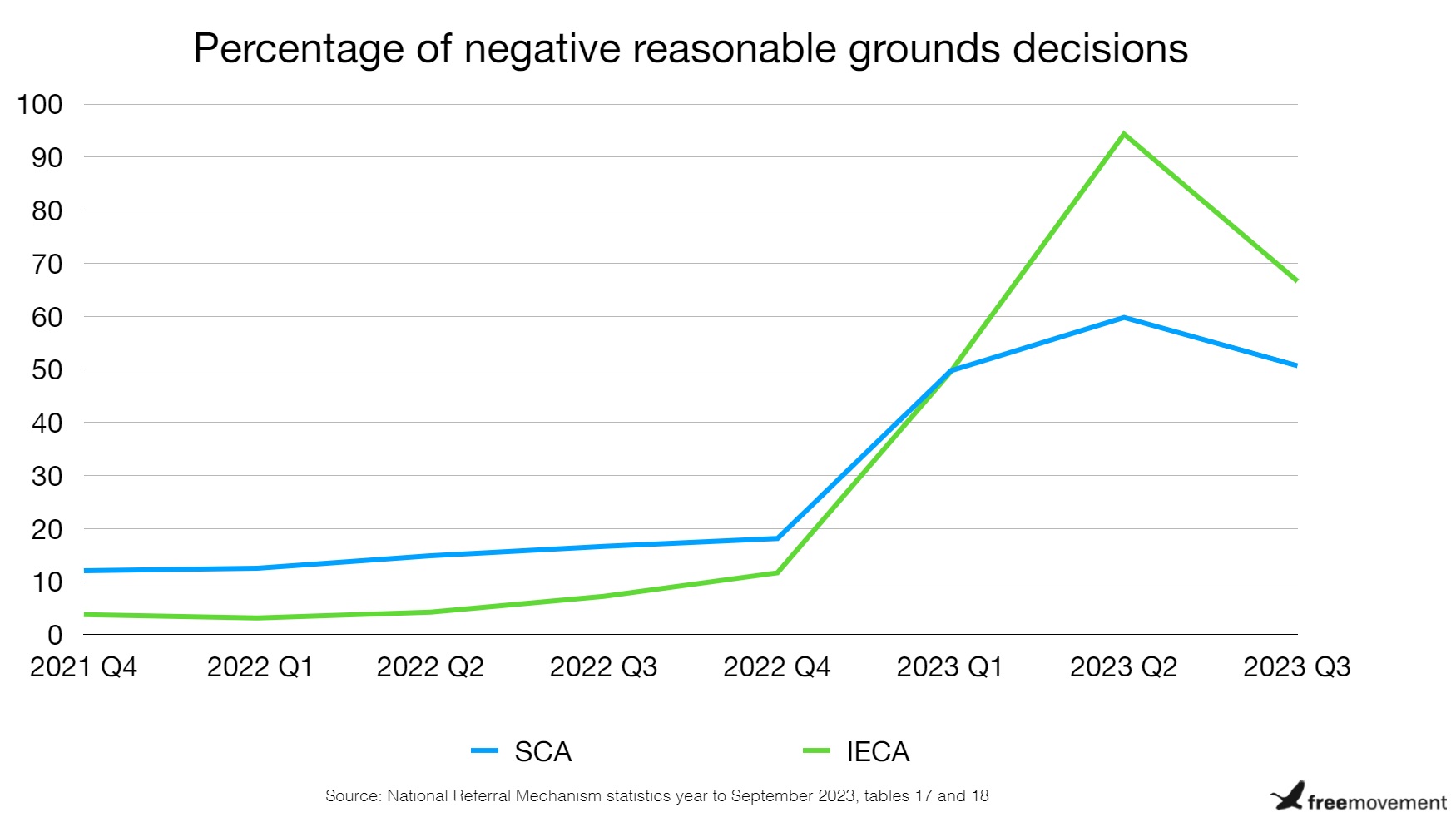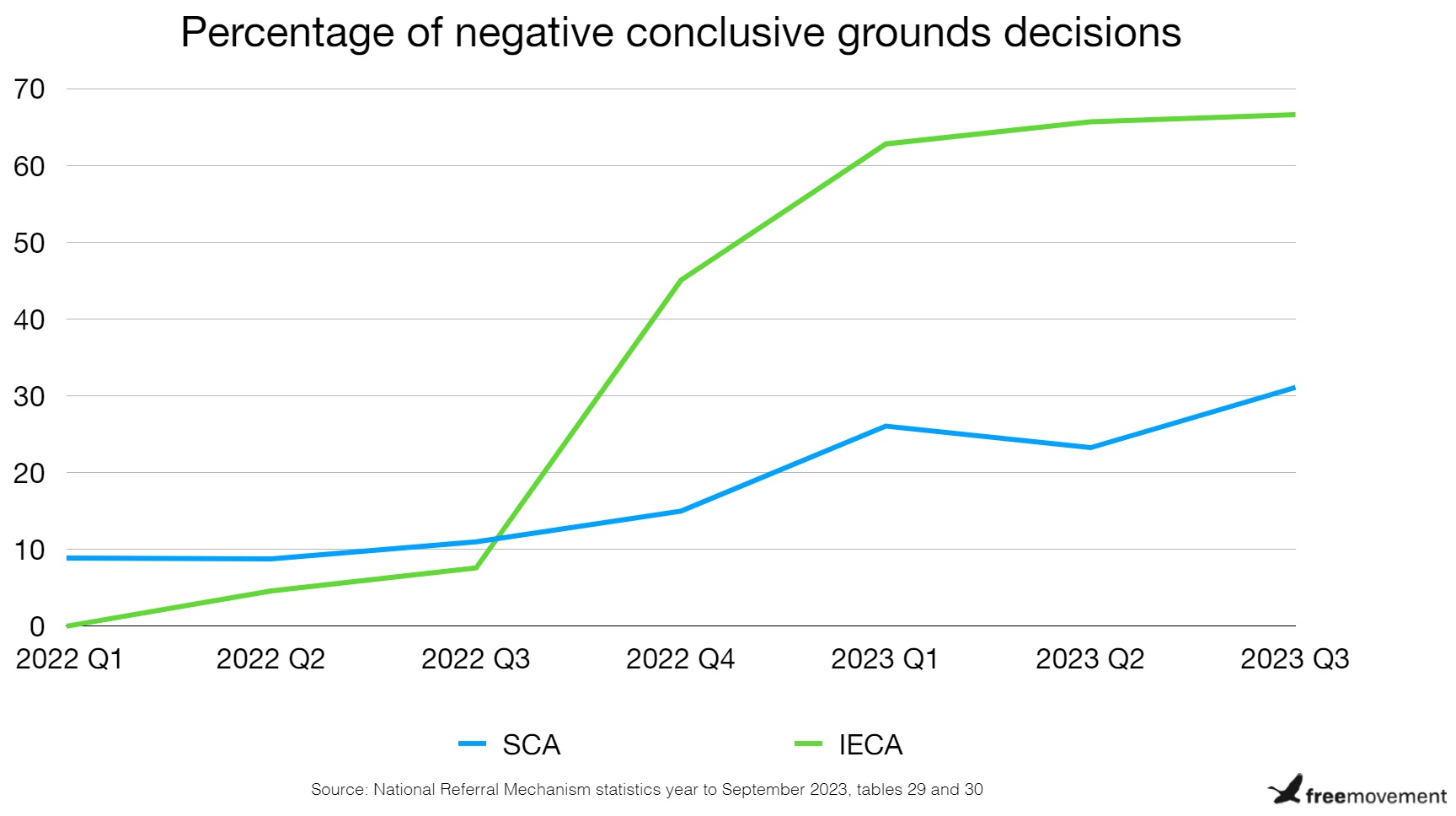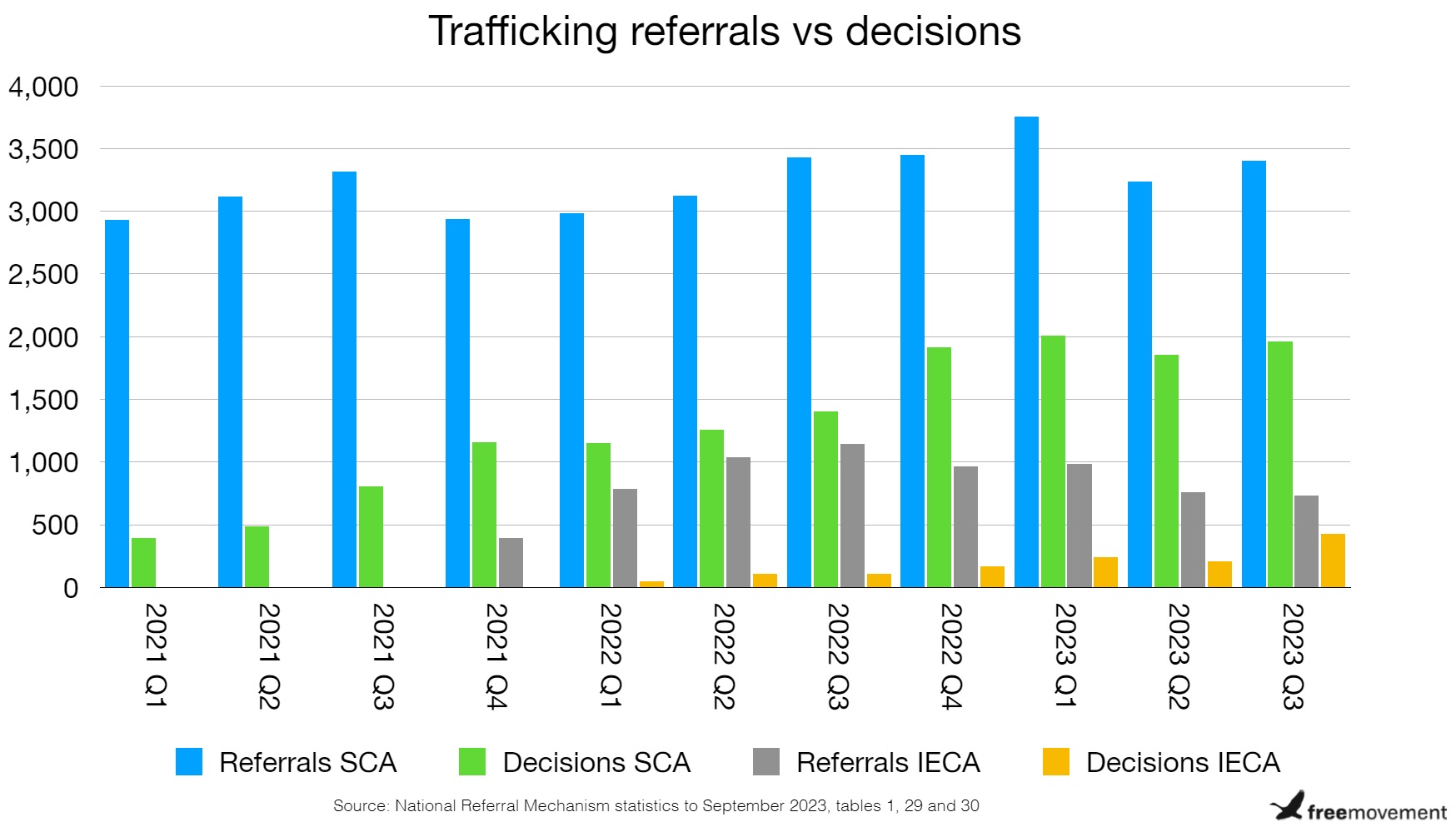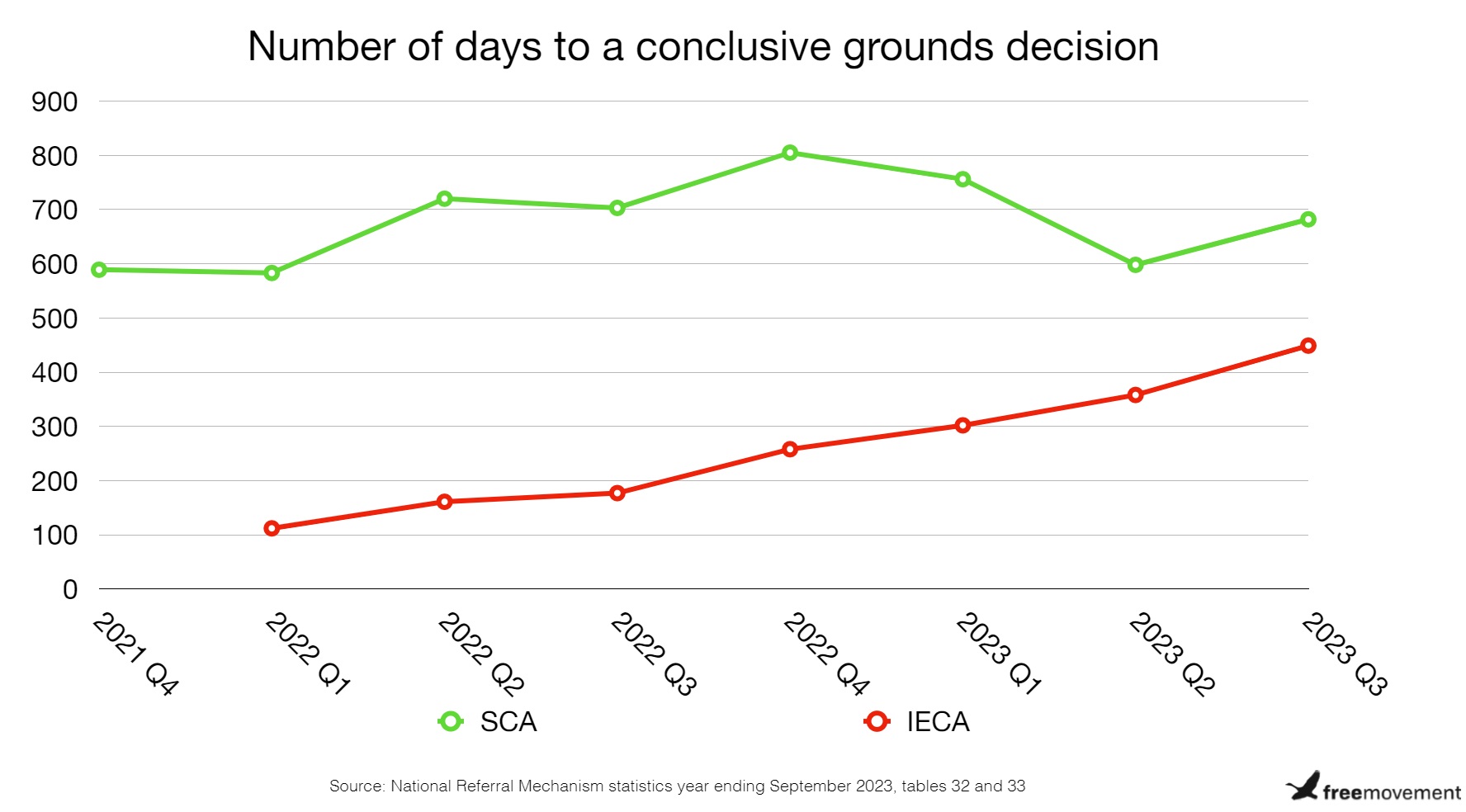- BY Sonia Lenegan

Latest trafficking figures show benefit of change in Home Office policy
THANKS FOR READING
Older content is locked

A great deal of time and effort goes into producing the information on Free Movement, become a member of Free Movement to get unlimited access to all articles, and much, much more
TAKE FREE MOVEMENT FURTHER
By becoming a member of Free Movement, you not only support the hard-work that goes into maintaining the website, but get access to premium features;
- Single login for personal use
- FREE downloads of Free Movement ebooks
- Access to all Free Movement blog content
- Access to all our online training materials
- Access to our busy forums
- Downloadable CPD certificates
As anticipated, the latest published trafficking statistics covering July to September 2023 show a substantial reversal in the number of refusals at reasonable grounds stage, although these are still far higher than before the Nationality and Borders Act 2022.
How does the modern slavery protection process work?
Firstly, a potential modern slavery survivor has to be referred by certain designated professionals into the protection system. Immigration lawyers cannot do this themselves. The protection system is called the ‘national referral mechanism’ (NRM).
Next, one of the two competent authorities must decide whether there are ‘reasonable grounds’ to think the referred person is a victim of modern slavery. The two bodies are the misnamed ‘single competent authority’ (SCA) and the ‘immigration enforcement competent authority’ (IECA). The latter was only created in 2021. As is indicated by the name, it has more of a focus on people without secure immigration status, including people who are detained or in the asylum inadmissibility process.
If the referred person receives a positive ‘reasonable grounds’ decision then they move to the next stage and will eventually receive a final decision from the competent authority handling their case on whether there are ‘conclusive grounds’ for thinking they are a victim of modern slavery.
Reversal in refusals at reasonable grounds stage
The number of refusals at this stage is still considerably higher than before the Nationality and Borders Act 2022 but the reduction is a welcome change. This reversal is due to the Home Secretary changing the way these claims are assessed, following litigation.
The change is described in the Home Office summary as:
During this reporting period, from 10 July 2023, the test was amended, such that the test is an objective one, whereby the decision maker must agree with the statement that there are “reasonable grounds to believe that a person is a victim of modern slavery”. This takes into account the victim’s account and any other relevant information that supports or undermines it, and considers whether it is reasonable to expect supporting information to be available.
As the change happened in July, a small proportion of the statistics for July to September will reflect decisions made under the previous test. In our analysis of the figures for April to June 2023 we showed decisions by year. Given significant changes have taken place in specific periods this year we have reflected those in the chart below.

The biggest changes have occurred with decisions made by the immigration enforcement trafficking body. This is to be expected as they deal only with people who are facing deportation or removal and all of these cases will be affected by the Nationality and Borders Act 2022, whereas the single competent authority figures include UK nationals, who account for 25% of all referrals.
For children, refusals at reasonable grounds stage have dropped from 88% in April to June to 53% for July to September for decisions made the immigration body. Decisions made the single competent authority have actually seen an increase in refusals at this stage for children, from 25% for the period April to June, to 39% for July to September.
Conclusive grounds decisions
The proportion of cases that are refused at conclusive grounds stage remains significantly higher for decisions made by the immigration body.

There has been a substantial reduction in the proportion of children’s cases that are refused at the conclusive grounds stage by the immigration body, from 68% in April to June this year to 42% for July to September. The single competent authority is trending in the opposite direction, as they have increased the proportion of negative decisions for children from 15% in the earlier period to 23% for the most recent one.
Delays
The number of referrals continues to exceed the number of final decisions being made, meaning that the backlog of cases waiting for a decision continues to grow.

As always, a reminder that the statutory guidance states that, where possible, reasonable grounds decisions should be made within five working days of the referral. This is now taking an average of 43 days for the immigration body, up from 15 in the same period last year. The single competent authority is taking an average of 61 days, or two months, to make this decision. For July to September last year it was 14 days.
The Home Office summary explains the delay as follows:
Average wait times for reasonable grounds decisions increased following the change in guidance for such decisions since 30 January 2023 (data table 19). This is likely because the change in guidance required decision makers to have regard to objective factors, and typically a positive decision should not have been issued without supporting evidence or information in addition to a potential victim’s account. Competent authorities therefore, in most cases, had needed to take additional action to request information demonstrating objective factors in order to make a decision.
It is unclear whether the change to this guidance in July 2023 will improve the delays.
Conclusive grounds decisions are taking an average of 682 days for the single competent authority, comparable to the 703 days for July to September last year but almost two years is still far too long.

The immigration body has not had as long to build up their backlog and associated delays (see previous discussion of this here), but those are steadily increasing to 449 days for July to September this year, contrasted to 177 the same time last year.
Conclusion
The delays really are shocking, particularly in the context of a 10% drop in the number of referrals compared to this time last year. There is no indication of things getting any better, particularly for the immigration body. However the decrease in refusals at reasonable grounds is certainly good news and we can hope that the trend continues in the next published figures.
SHARE

